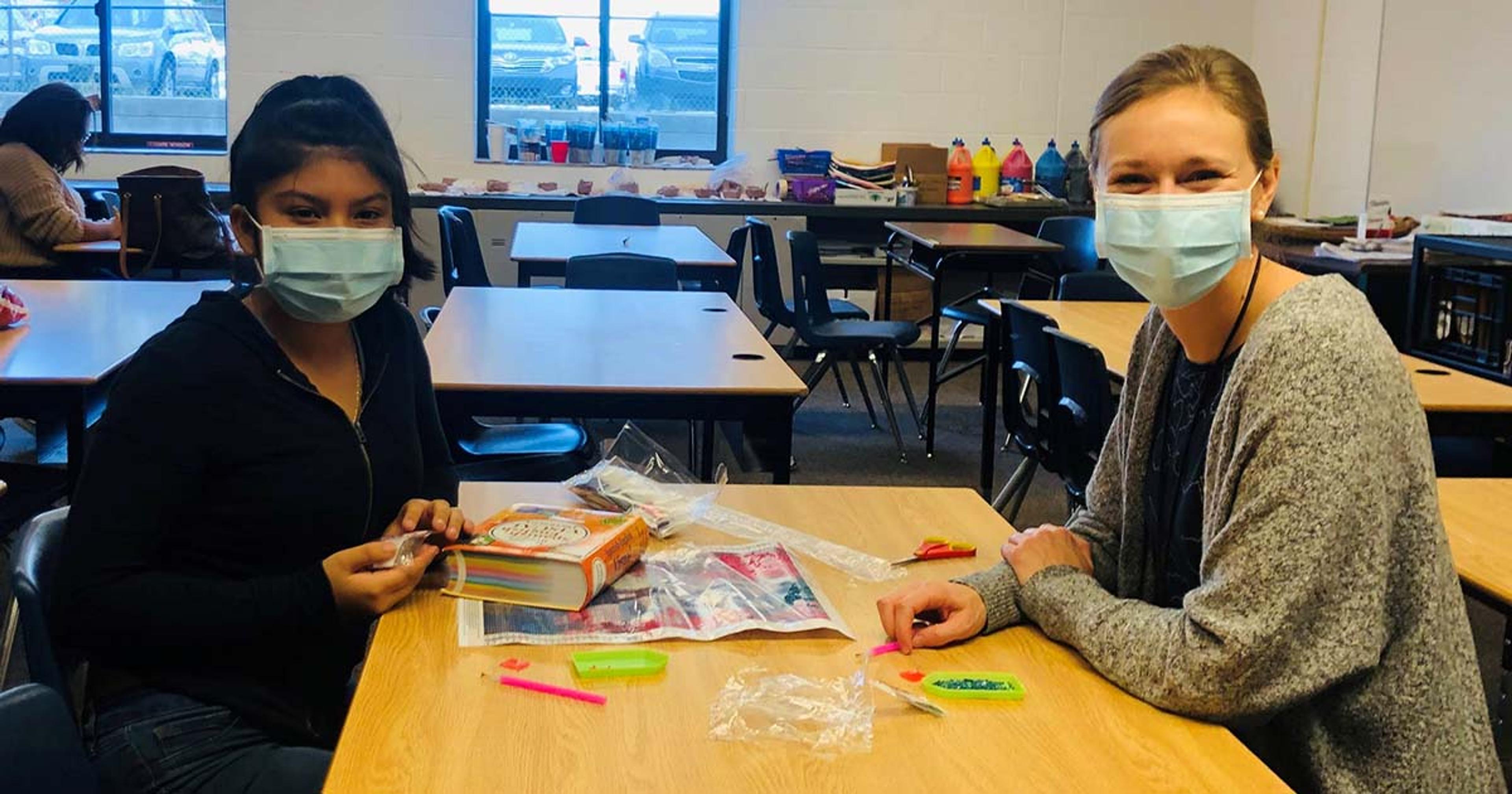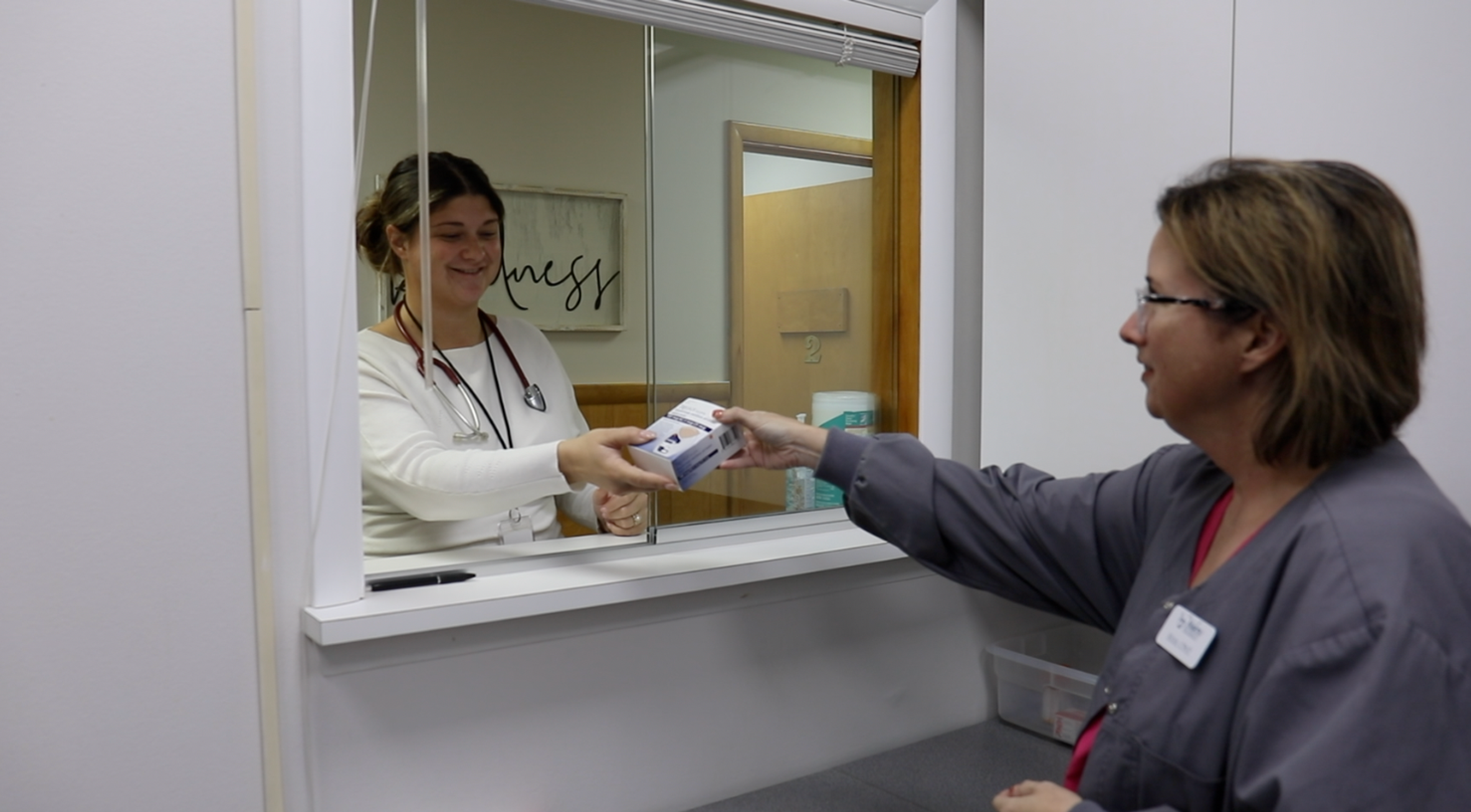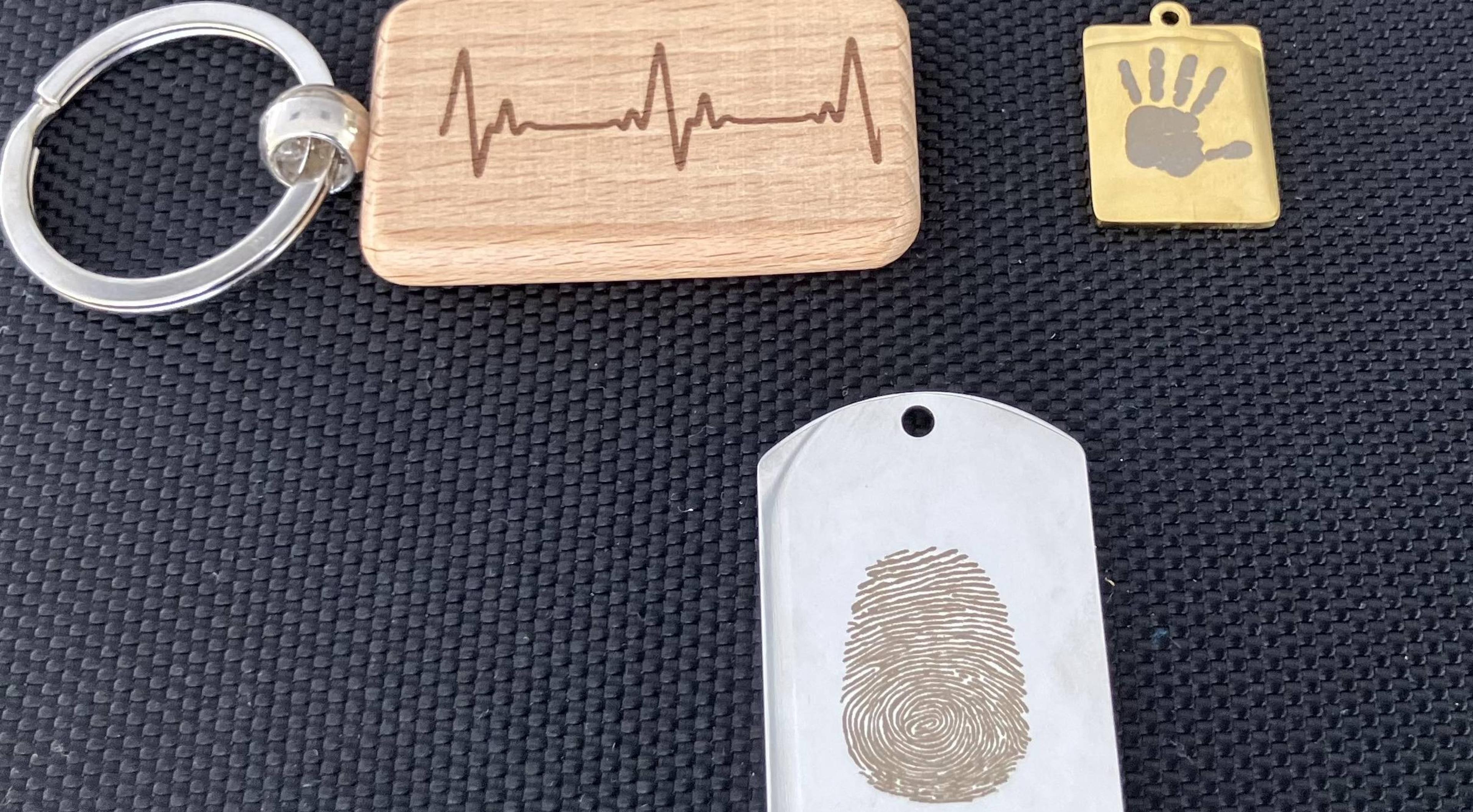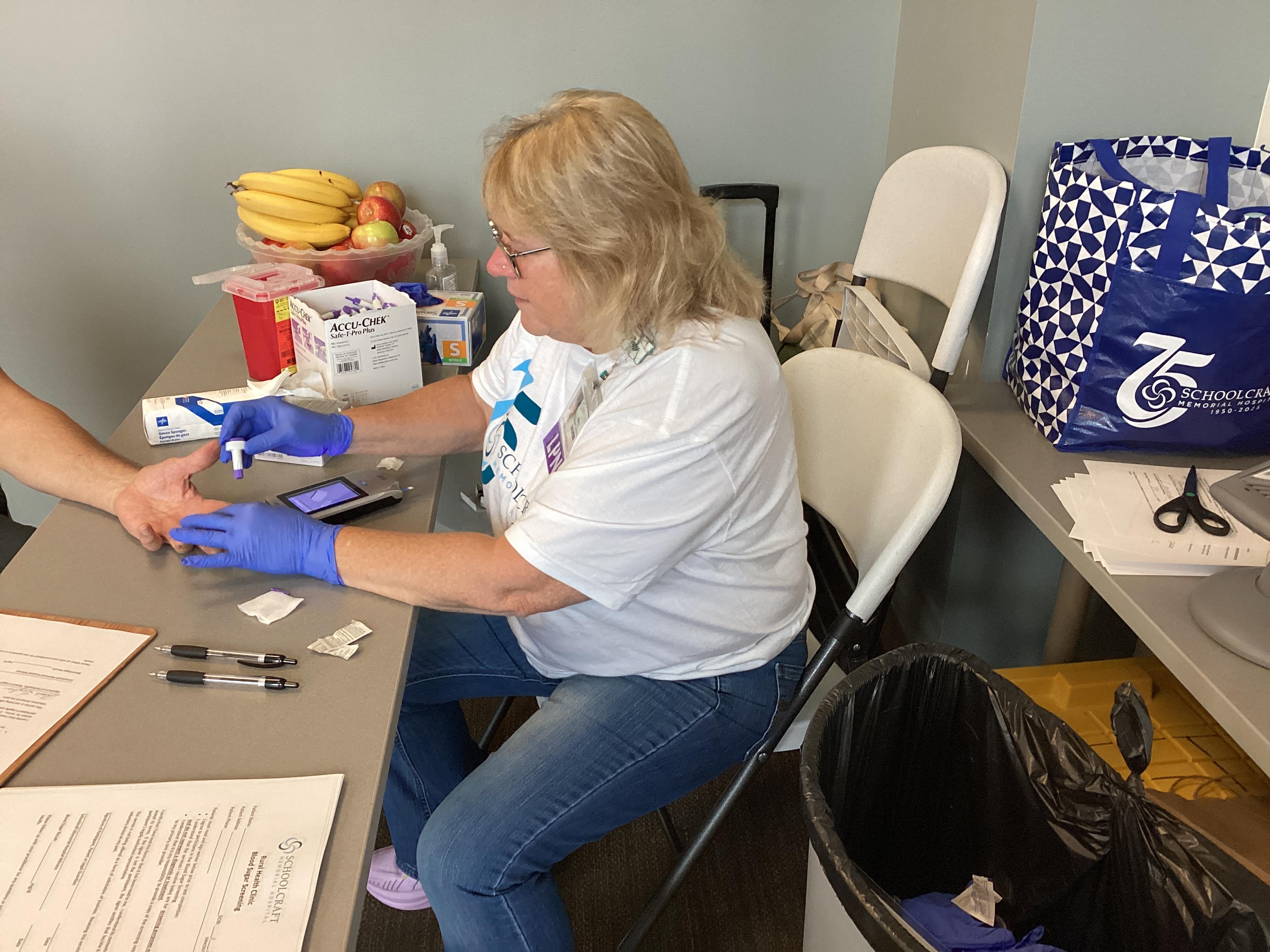Mentoring Program Helps Students Learn What They Don’t Teach You in School
Amy Barczy
| 4 min read
Amy Barczy is a former brand journalist who authored...

Grappling with the interruptions to normal life from the COVID-19 pandemic is hard to manage as an adult. Try being age 12 or 13. You haven’t fully developed the ability to communicate your emotions and regulate them. At school, things aren’t as constant as they used to be: drinking fountains are shut down, there are new rules, sometimes classes are virtual and sometimes the school is closed altogether. Affinity Mentoring, a nonprofit in West Michigan, is hoping one-on-one attention between volunteer mentors and students can make a difference. The organization matches students in grades K-8 at six elementary and middle schools in the Grand Rapids and Godfrey-Lee public school districts with mentors to help them grow their social-emotional skills, build self-esteem and improve their academics.
A mentor and student play ping pong. “Getting kids caught up on math, science and reading is a tertiary concern in schools – the behavior concerns inside schools are above and beyond what we’ve ever seen,” said Cassandra Kiger, executive director at Affinity Mentoring, of the impact of the pandemic on students. “At work, adults can say ‘I’m really overwhelmed, I need to take a step back. At school, for students, there’s no outlet for someone to say that.” Affinity opened a new program at Godfrey-Lee Middle School this academic year – and took a new approach. Capitalizing on the growing independence middle school brings, a student steering committee was formed to help design the program, the mentor center and then to select their own mentors. The Blue Cross Blue Shield of Michigan Foundation awarded Affinity Mentoring a $33,000, two-year Community Health Matching grant in 2021 to support the site expansion. “Mentoring is important to me personally. I learned from one of my own mentors that forming and maintaining good relationships with others was essential in work and personal life. This is why the BCBSM Foundation is supporting the work of Affinity Mentoring with this grant,” said Audrey Harvey, executive director and CEO of the BCBSM Foundation. “My mentors helped me grow and shaped me in ways that I could have never done on my own because life is too short to learn all the lessons.” Affinity Mentoring has stepped in to fill gaps for students – allowing students one-on-one attention with an adult to talk about their lives and their feelings. It’s less about tutoring help, and more about building social and emotional learning and skills, as well as leadership development. Staff with the mentoring program can also learn more about the student’s home life to help support their family with connections to assistance or resources. Middle school is a critical age as educational declines, substance use concerns and relationship issues all begin during junior high, Kiger said. The transition to the demands of middle school – like changing classrooms, keeping track of assignments and understanding your grade point average – are all new concepts to master. And for students whose parents didn’t grow up with the U.S. education system, it can be especially difficult for them to help their children through these new challenges. Kiger said this is where mentors can be especially helpful. Jason Loepp volunteered as a mentor at Burton Elementary in Grand Rapids, where he was matched with a student for five years. They shared the same interests – soccer, gaming, card games and math. Watching the student grow and change made a big impact. “As a father of two young kids, I know the importance of engaging,” said Loepp, who is a director of reporting and account services at Blue Cross, about why he became a mentor. “The more I heard about Affinity and the one-hour-a-week commitment, I jumped right in. I now serve as a member of the board and I’m able to use my voice and network to help others know and understand about the programs.” Affinity Mentoring is actively raising money to support their second semester programming in schools in West Michigan – and relies on volunteer mentors to help students across the six schools they serve. Learn more here. More from MIBluesPerspectives:
Photo credit: Affinity Mentoring





